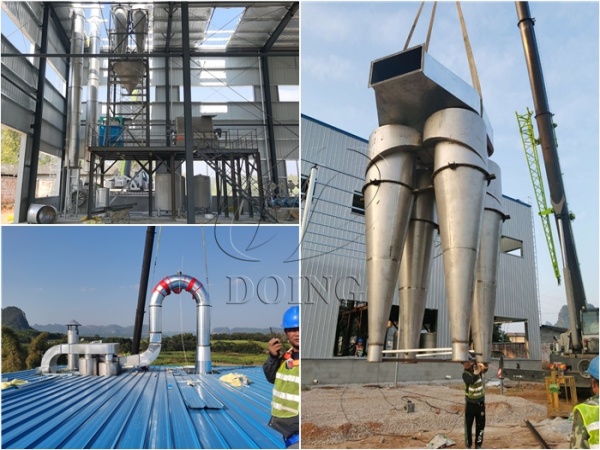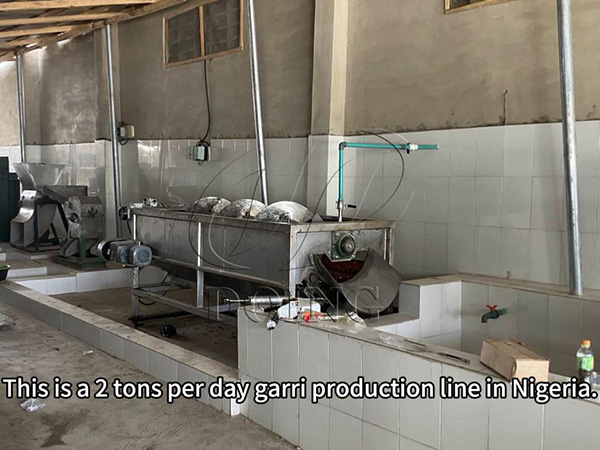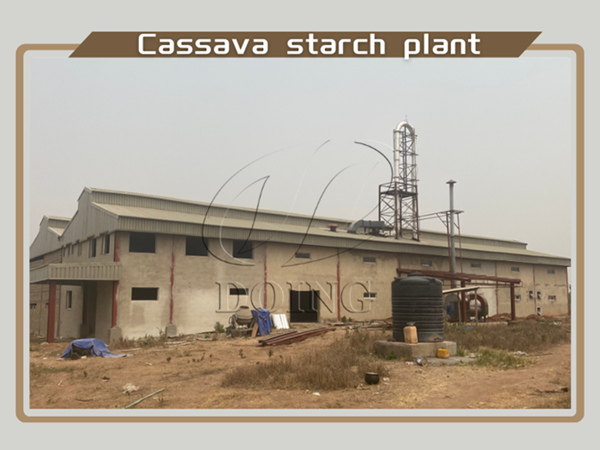
The Technology Behind Modern Cassava Dewatering Presses
FAQ/ Chat online/ Leave a message/ September 19, 2025
In the cassava processing industry, whether for garri or cassava flour, the efficient dewatering presses are crucial for product quality and economic viability. Common cassava dewatering presses include hydraulic press and plate-frame filter press. With the innovative technical designs, they continue to provide more powerful, intelligent, and reliable solutions for the cassava processing industry.
This article, using Henan Jinrui's hydraulic presses and plate-frame filter presses as examples, will provide a detailed analysis of the innovative technology behind cassava dewatering presses, revealing how the precise integration of mechanics, filtration, and intelligent control achieves a leap in dehydration efficiency.
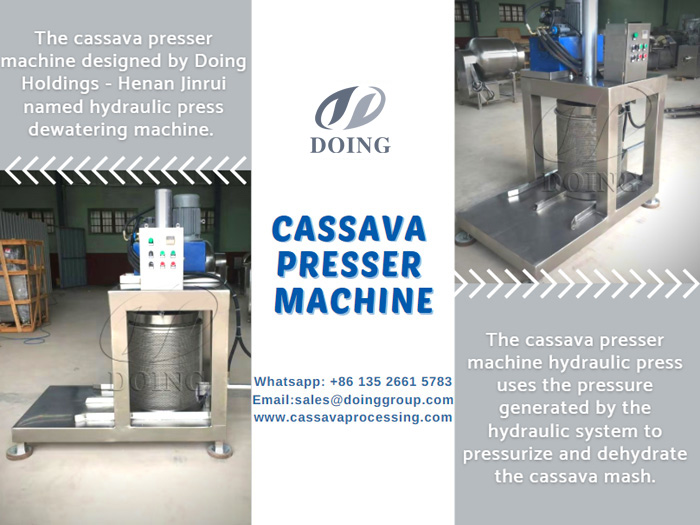 Cassava pressing machine
Cassava pressing machine
Mechanical Pressure System
In the overall design of modern cassava dewatering presses, the mechanical pressure system is the core driving force for efficient dewatering. The key technology behind this system lies in applying continuous and uniform pressure to the material, effectively squeezing out water and ultimately significantly reducing the moisture content of the cassava pulp.
Hydraulic Press: The typical example of the efficient application of a mechanical pressure system. Its core technology lies in a powerful hydraulic system. Driven by a hydraulic pump, this system generates high pressure, which is transmitted smoothly and evenly to the press plates via cylinders. This constant pressure forcibly squeezes out moisture from the crushed cassava pulp, effectively reducing the moisture content to 38-40%.
Plate-Frame Filter Press: Utilize another classic mechanical pressure principle. The core technology relies on a power system that continuously pushes multiple filter plates together, gradually reducing the space within the plate and frame chamber. As the chamber shrinks, a strong squeezing force is exerted on the enclosed cassava pulp. This increasing squeezing force allows water to penetrate the filter cloth and escape. Ultimately, the moisture content of the cassava pulp can be reliably reduced to approximately 40%.
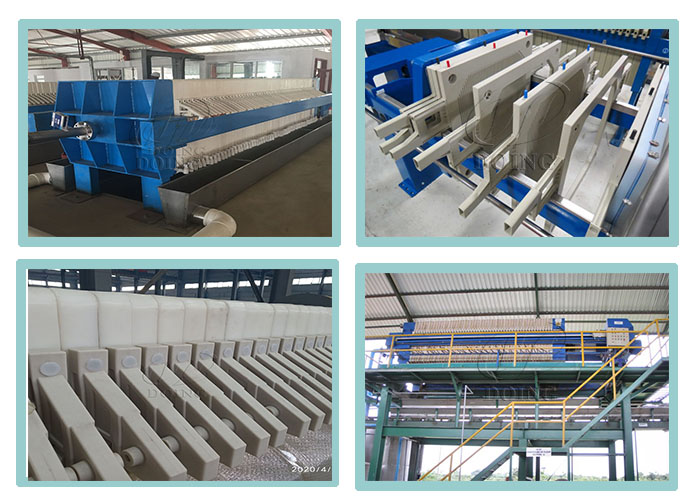 Cassava dewatering press
Cassava dewatering press
Filtration System
The filtration system is also a core component of modern cassava dewatering presses. The technology behind it achieves efficient solid-liquid separation under pressure, allowing water to be quickly filtered out while effectively retaining starch and fiber, thereby ensuring stable dewatering results.
Hydraulic Press: The filtration system typically consists of a filter cloth and a filter cylinder. The core technology behind this system is that under pressure, water is forced through the filter cloth and discharged, while the solid cassava cake is trapped in the filter cylinder to form a filter cake. This design is a key factor in the reliable dewatering of modern cassava dewatering press.
Plate-Frame Filter Press: Filtration relies on a carefully designed combination of filter plates and filter cloth. Each filter plate features a reinforced structure that reduces clogging and improves filtration uniformity under high pressure. This filtration system significantly improves the overall dewatering efficiency of cassava dewatering presses by efficiently separating liquids and solids.
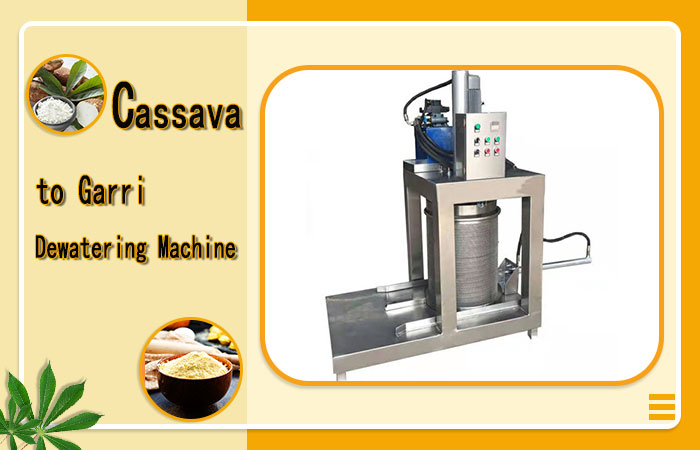 Hydraulic press
Hydraulic press
Automated Control Systems
Automated control systems are key to achieving efficient and stable dewatering in modern cassava dewatering presses. The technology behind these systems integrates logic control, sensors, and actuators, enabling semi- or fully automated operation, significantly improving the efficiency and consistency of the dewatering process.
Hydraulic Presse: Typically incorporate basic automated control features, such as one-touch start/stop and a sliding discharge mechanism. Operators can quickly dewater the material with a single button press, streamlining the process. While this level of automation is relatively basic, it effectively reduces manual intervention and significantly improves the efficiency of cassava dewatering presses.
Plate-Frame Filter Press: Offer a higher level of automation, with a PLC system. Operators simply pre-set parameters such as pressure and pressing time, and the entire cycle, from feeding, pressing, discharge, and cleaning, is automatically completed. It completely liberates the operator's hands and ensures the accuracy and reliability of the dehydration process.
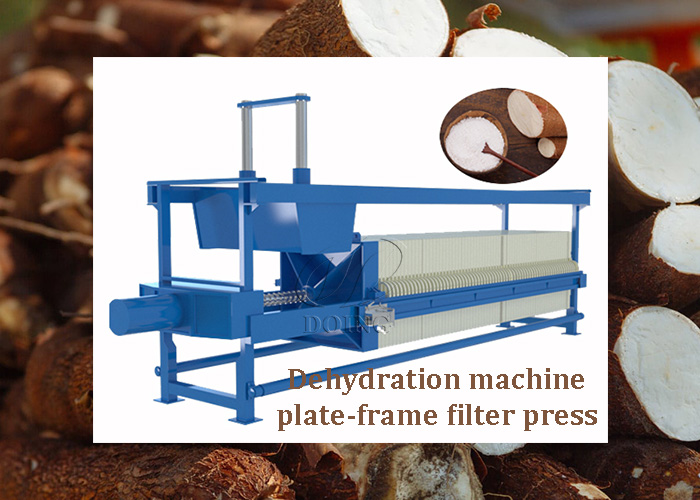 Plate-frame filter press
Plate-frame filter press
In summary, modern cassava dewatering presses are far more than simple mechanical extrusion equipment. The technology behind the exceptional performance stems from the precise coordination of a mechanical pressurization system, a high-efficiency filtration system, and an intelligent automatic control system. The integration of these core technologies has jointly propelled the cassava processing industry towards high efficiency, low energy consumption, and high quality.
If you are looking for a stable and efficient cassava dewatering solution, welcome to contact us! Henan Jinrui, with its advanced cassava dewatering machine and technology, can create greater value for your cassava processing business!
Leave A Message
- Do you want to buy machine?
- Yes, I want to buy machine
- No, I want to learn more in advance.
- What is your raw material?
- Cassava
- Potato
- Sweet potato
- Other:
- What is the final product you want to produce?
- Chips
- Flour
- Starch
- What is the final product you want to produce?
- Garri
- Cassava flour
- Cassava starch
- Cassava chips
- Attiekie
- Bammy
- Other:
- What is your planned capacity for final product?
- <1 ton per day
- 1 ton per day
- 2 tons per day
- 3 tons per day
- 3-10 tons per da
- 10-20 tons per day
- >20 tons per day
- What is the usage of your cassava chips?
- Food usage (like fried chips, flour)
- Industrial usage (like animal feeds, ethanol)
- What is your planned capacity for final product?
- <5 ton per hour
- 5-10 tons per hour
- >10 tons per hour
- What is your planned capacity for final product?
- <500 kg per hour
- 0.5-5 ton per hour
- 5-10 ton per hour
- >10 ton per hour
- What is your planned capacity for final product?
- <300 kg per hour
- 300-1000 kg per hour
- 1-5 ton per hour
- 5-10 ton per hour
- >10 ton per hour

